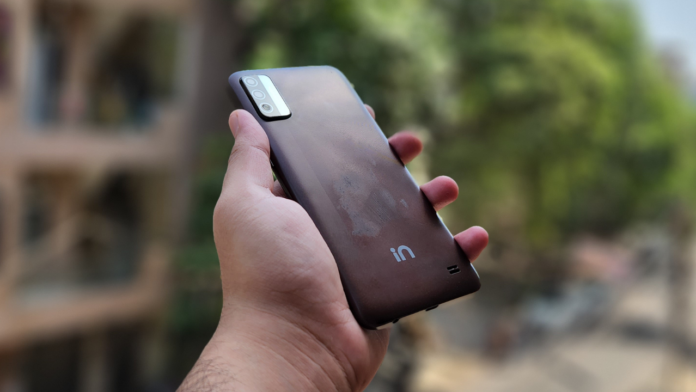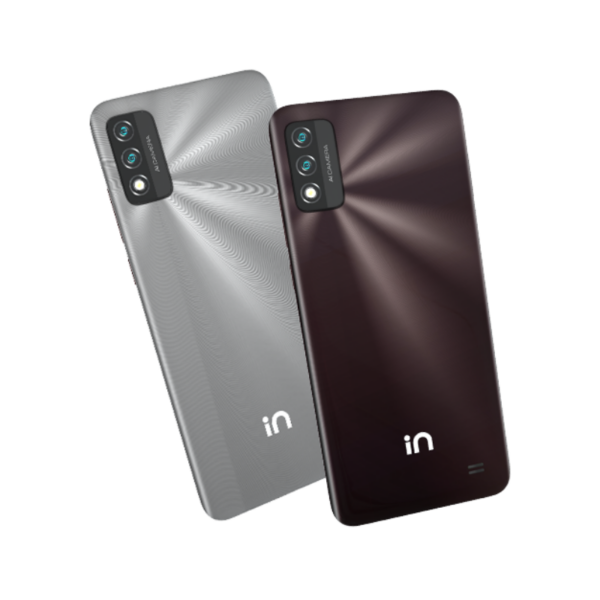Micromax’s latest smartphone is yet another budget offering from the homegrown brand and it is the In 2C. The In 2C succeeds the In 2B from last year but looking at the on-paper specs, the device looks more of a downgrade rather than an upgrade. While the In 2B starts at Rs 8,499 for the 4GB + 64GB model, the In 2C also comes at Rs 8,499 but for the sole 3GB + 32GB model. Is it worth purchasing the In 2C over the In 2B? Let’s talk about it in detail.
The In 2C from Micromax comes with a plastic build which is the same as the In 2B. The design of both smartphones is also very similar except for the fingerprint. Surprisingly, the In 2C drops out the fingerprint sensor that can be found at the back of the In 2B and this is a bummer.
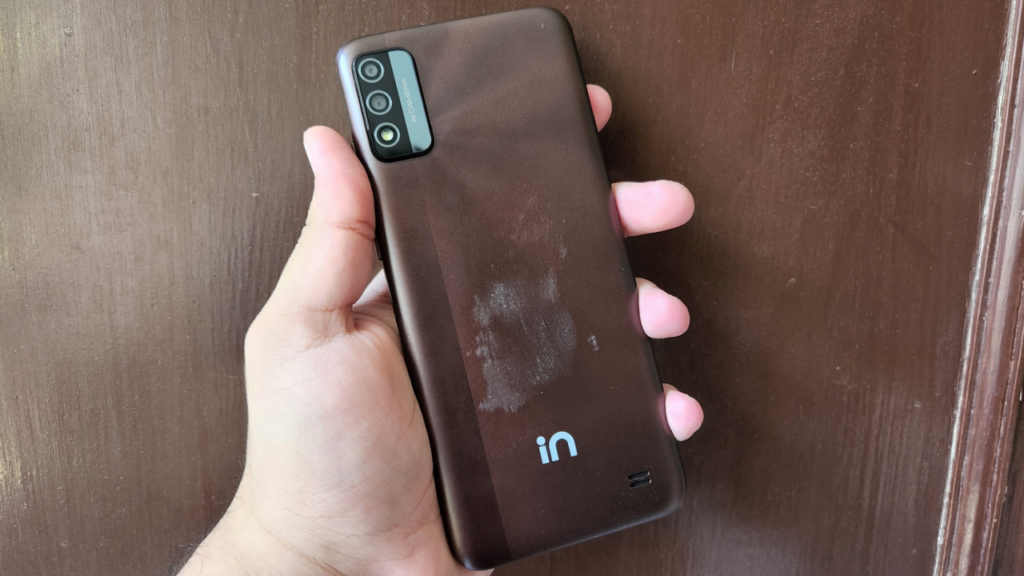
The device is available in two colours which are silver and brown. The brown variant we got looks decent. However, the quality of plastic is very bad. Removing the IMEI sticker from the back resulted in a big stain of the glue that didn’t wipe off even after 4 to 5 tries.
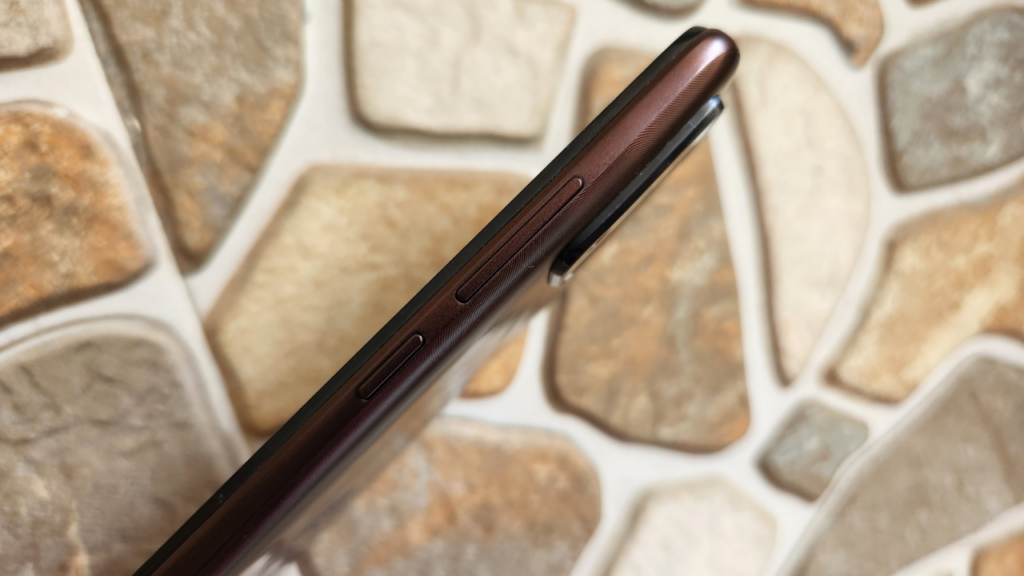
The design of the device looks standard Micromax style with a USB-C port and a Headphone jack at the bottom. On the right, reside the power button and the volume rocker. The in-hand feel of the device is fine and there’s a good grip. It also feels light to hold.
Micromax In 2C: Display
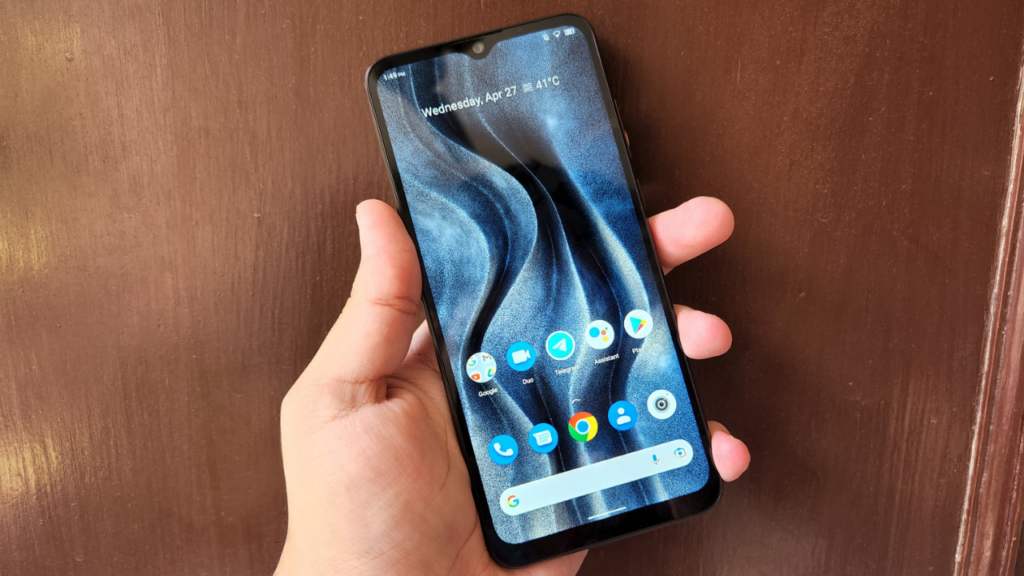
The display on the front is a 6.52-inch HD+ 60Hz display with 1600 x 720 pixels resolution, a 20:9 aspect ratio, 420 nits max brightness, and an 89 percent screen ratio. This is a similar display as the In 2C’s predecessor and it looks fine. The viewing angles aren’t the best and the colour reproduction could have been better. Brightness is barely on-par for enough readability under direct sunlight. However, despite the Resolution being HD, it looks sharp enough.
Micromax In 2C: Performance
The Micromax In 2C employs the Unisoc T610 Processor which is again identical to the In 2B. Moreover, it comes in a single 3GB + 32GB variant whereas the In 2B had up to 6GB RAM and 64GB storage. This is another downgrade we feel wasn’t necessary. You do get microSD card support, fortunately.
As for the performance, it comes with the same Stock Android 11 as the In 2B. In daily usage, there were a minor amount of lags that I was facing while opening apps and switching between them. Those stutters are something I hadn’t expected. In addition, the apps took a second or two to open. RAM management was poor as well as most of the apps would load from the start very often.
Furthermore, it comes pre-installed with the November 2021 patch which is 6 months old at this point and this is just unacceptable. Having the latest security patch is necessary to ensure your device is secure from various threats.
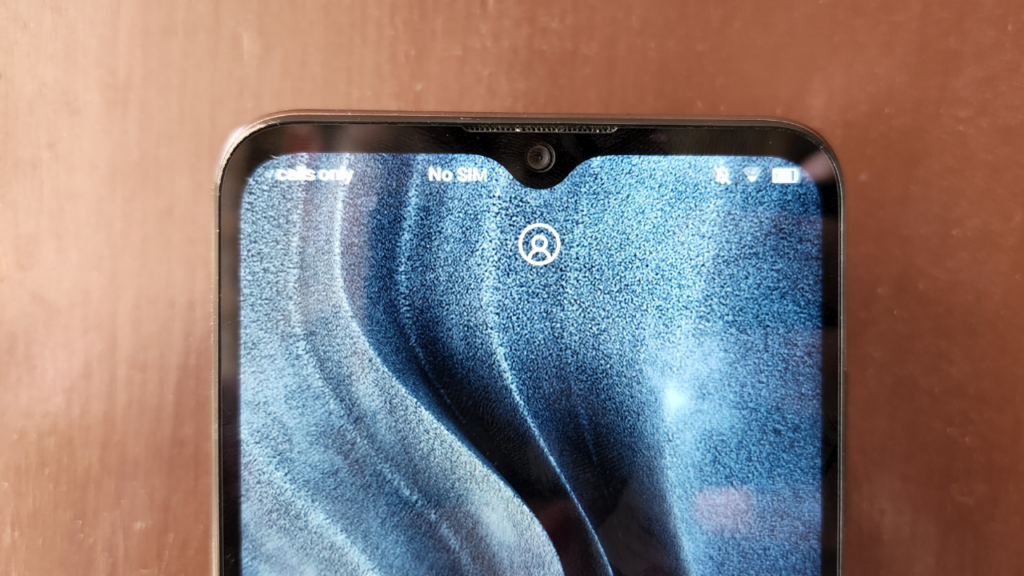
The only positive aspect I could notice is that you do not get bloatware but that doesn’t matter as security and performance are far more important topics to focus on. The device has face unlock support and it works fine for the most part. There were no issues with Mobile Data and wi-fi connectivity either. The device has a Dual-Band Wi-Fi so there was no problem in connecting to a 5Ghz Wi-Fi.
Micromax In 2C: Battery Backup
The Micromax In 2C is backed by a 5,000mAh battery with 10W charging support. As I expected, In 2C performs exceptionally well in terms of battery. It can easily last more than a day with around 5 to 6 hours of screen-on time. You can stretch it past 2 days if you are not a heavy user. The device takes 2 hours to charge from 20 to 100% and this could increase to up to 2.5 hours or maybe even 3 if you charge it from zero to 100%.
Read More: Micromax In 2C launched in India with Unisoc chipset
Micromax In 2C: Cameras
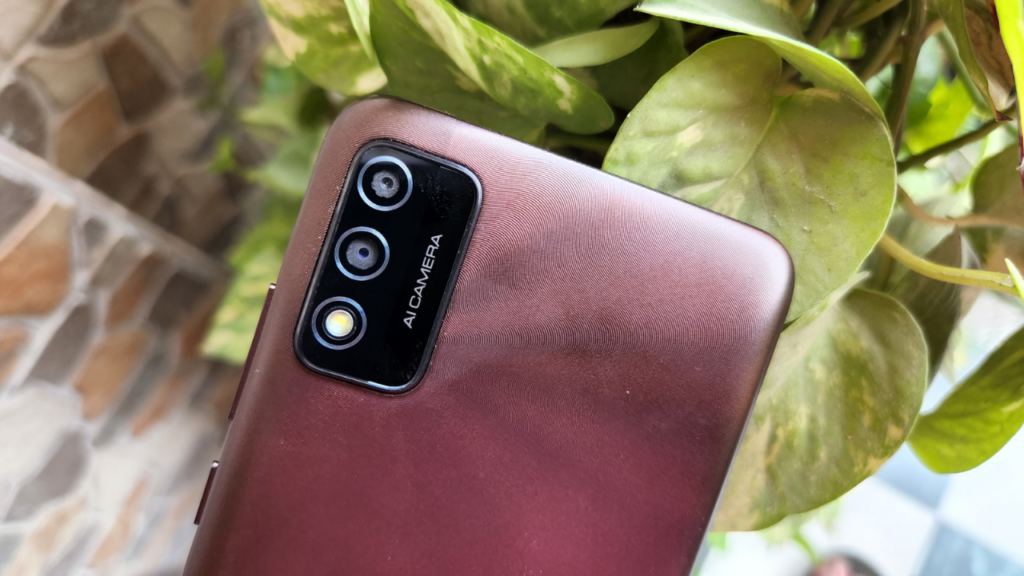
The Micromax In 2C has a dual-camera setup with an 8MP primary sensor and a 2MP depth sensor. The In 2B came with a 13MP primary sensor in comparison. On the front, the Micromax In 2C has a 5-megapixel camera.
The camera of the In 2C performs decent outdoors but it’s a mess when capturing indoors. The HDR when outdoors is a bit overdone because of which there’s a visible white outlining between the brighter and darker parts of the photo.
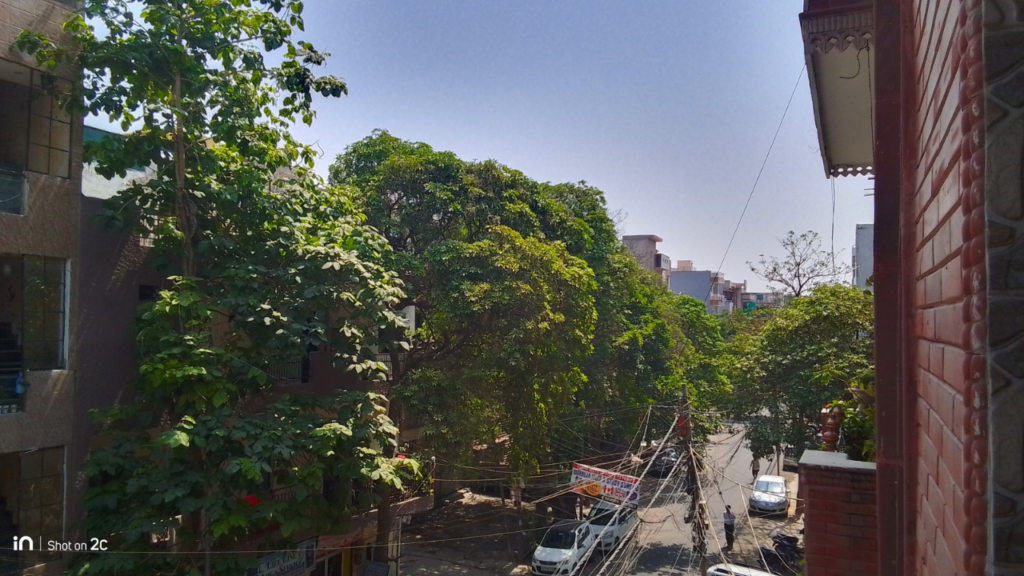
You can notice it above the treeline and below the portion where the sky ends in the photo above. However, the detailing and sharpness in these photos looked good with vibrant colours which can look slightly oversaturated in some scenes. Also, I did notice that there’s a good amount of shutter lag as well.
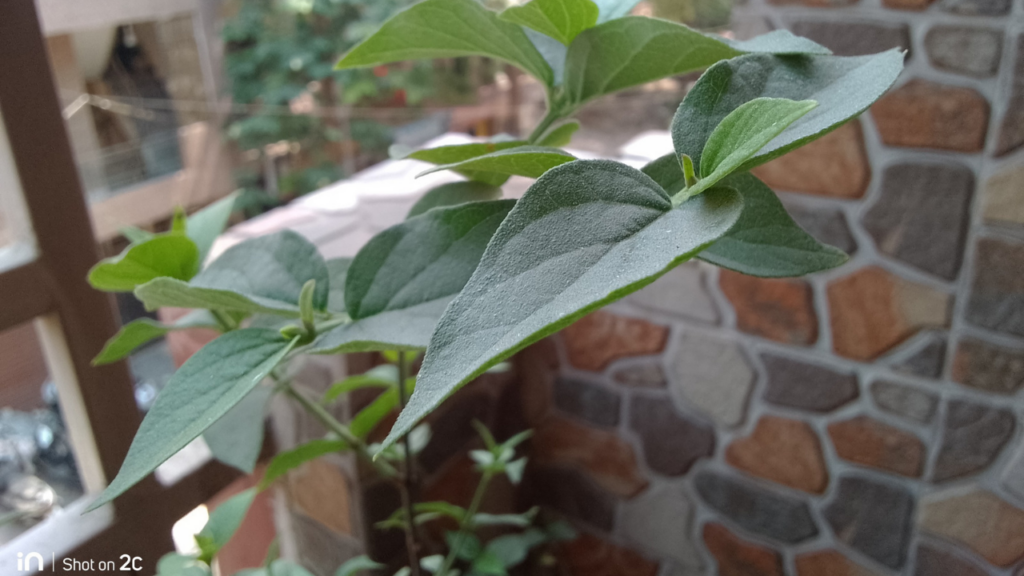
The 2MP depth sensor does create a good bokeh effect which is also accurate when it comes to EDGE detection. Again, the photos are decent for a device that costs this much.
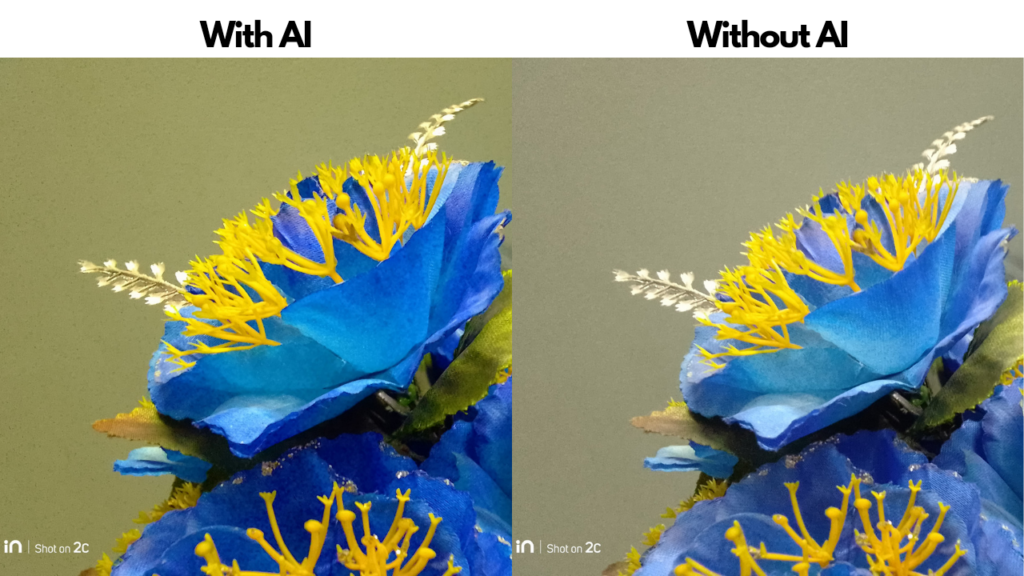
However, when indoors, photos clicked under artificial lighting look odd. The photos are blurry and noisy. The AI mode can change the whole picture depending on the subject but it’s not very accurate. It keeps on changing the colours in real time even if you slightly move the phone. If you are able to click a photo with the AI scene in use, the photos are oversaturated once again.

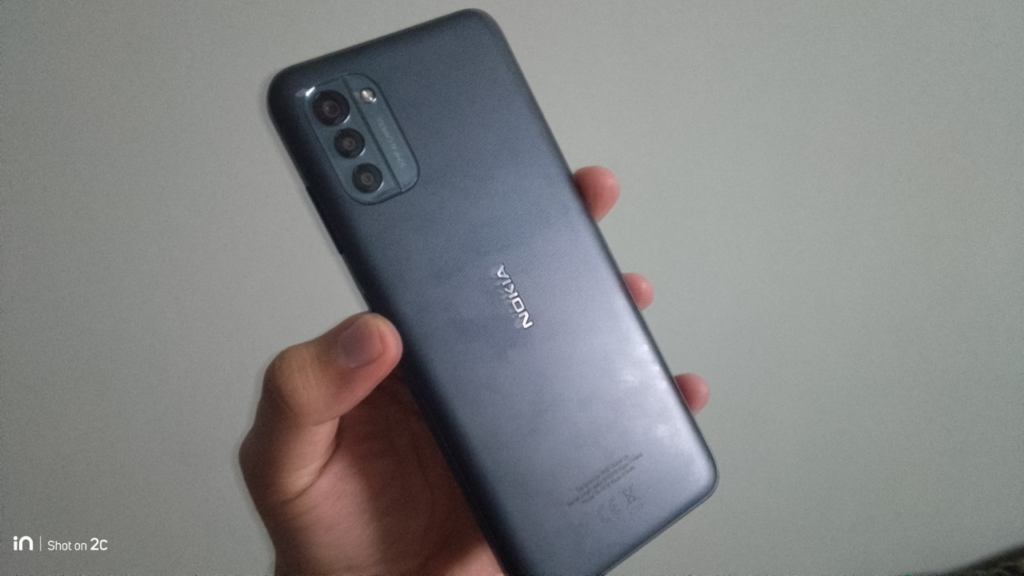
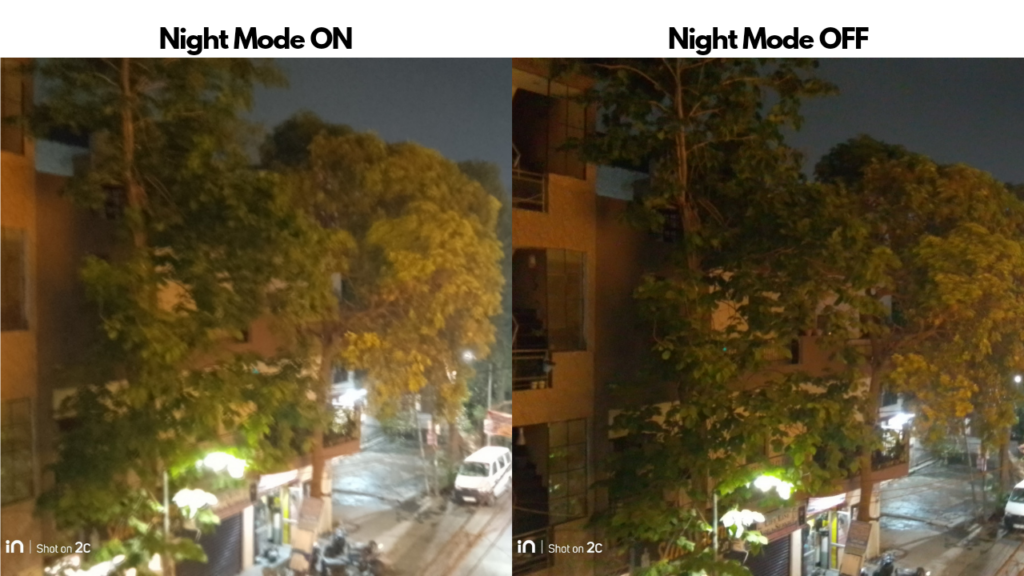
Under low lighting and night environments, the situation gets worse. I wasn’t able to take a single photo which wasn’t shaky and blurry. You cannot expect any amount of details when capturing under said scenarios. Selfies are also very soft with a high-intensity warm tone being applied to the photo.


